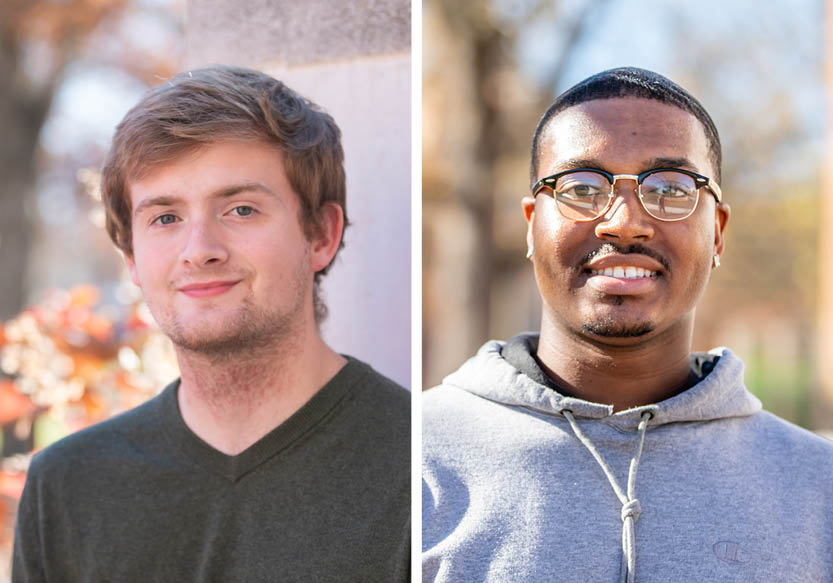During the first two academic years affected by the COVID-19 pandemic, it became apparent to the leaders in the Office of Student Life that the student government model they had been using no longer served today’s student. The prototypical structure of a popularly elected president and vice president leading Student Senate meetings didn’t allow a multitude of voices to be heard in relation to solving issues among the student body. The pause on student government during the pandemic allowed the Student Life staff to hold focus groups with students and faculty advisors to clubs regarding what an ideal model could look like. They took the time to build a new system of governance, now called the Bridgewater College Student Association (BCSA), which focuses on ensuring more students are represented and that communication among students is increased.
“We took the opportunity to build from the ground up something that would help students be seen and heard and foster a sense of belonging,” said Vice President of Student Life and Dean of Students Dr. Leslie Frere. “The structure is all about fostering collaboration among students and making sure every single student can be represented through the system.”
The new structure is built on a foundation of student clubs with similar interests grouped into five committees: Civic Wellness and Service, BC Identities, Academic and Honor, Recreation and Leisure, and Campus Life. A representative from each of the approximately 60 clubs on campus serves on the designated committee, and those committees meet once a month to discuss projects, issues and other topics as they arise. The BCSA Cabinet—consisting of the student chair, student co-chair and a student representative from each committee—meets once a week with the BCSA advisors to discuss issues brought forward during committee meetings or concerns shared directly from members of the student body. The student cabinet positions all come with a stipend, in order to be more accessible to students wishing to gain leadership experience and to incentivize students to take their roles seriously. The cabinet also includes BCSA advisors Sam Huyard, Coordinator of Student Engagement and Leadership; Whitney Smith ’01, Assistant Dean of Students for Engagement; Liz Howley, Associate Vice President for Student Life; an athletics department representative; and Frere.
“A significant benefit to BCSA is how many leaders are involved,” says 2022 BCSA Chair Dolan Nethercutt ’23. “We can reach so many more people and gain a lot more perspectives with this structure.”
One goal for the new structure, says Smith, is that the committee members will tackle more problems at the grassroots level, promoting problem-solving among peers. Students can bring forward issues—and potential solutions—during their committee meetings, and any unresolved concerns can rise up to the BCSA Cabinet level. Club representatives can also share news of projects and initiatives and can partner with other clubs doing similar things. As a recent example, three clubs that were planning to do individual fashion shows shared resources to put on a joint show. The direct communication breaks down silos and helps students realize they are involved in a community within the larger BC community.
“The synergy between clubs is what I’m most excited about,” Smith says. “I think that’s the piece we’ve been missing for a long time.”
Nethercutt and Amere Langley ’23 served as BCSA chair and co-chair, respectively, in 2022. The chair and co-chair terms run from January through December, and the two student representatives are chosen from an extensive application process that includes a review board made up of other student leaders on campus. The move to calendar-year terms means more preparation time for the student leaders, especially during the summer months. During the academic year, the chair and co-chair lead monthly Town Hall meetings, which include representatives from each of the clubs on campus; those meetings are also open to all students. Topics on the agenda are more systemic, such as the discussion of printing accessibility from this fall. Student input led to a printer being moved from the Kline Campus Center to the McKinney Center for Science and Mathematics to better serve student needs. The meetings are a time for students to voice their opinions, questions and concerns with each other and student leaders, as well as with BC administrators, including Vice President for Finance, Steve Bright, who attended the November Town Hall to discuss tuition.
“I love being part of things that are bigger than me and enjoy working with others to effectively change the status quo,” Langley says.
The Student Life curriculum, focused on identity, community, critical thinking, and cultural appreciation, provides the structure for students to be able to have pointed conversations and helps them understand more broadly how they are a part of a larger community. BCSA’s inclusive approach is an extension of that mission and was designed to best serve students—now and in the future.
“In BCSA, they have three different levels of community connection within that organization, which fosters lots of good things and helps you appreciate the perspective of other people, that they have a different lens they bring to the table,” Frere says. “This gives students the opportunity to learn how to fix problems themselves, which are skills they’re going to need when they graduate.”
— By Jessica Luck
jluck@bridgewater.edu


